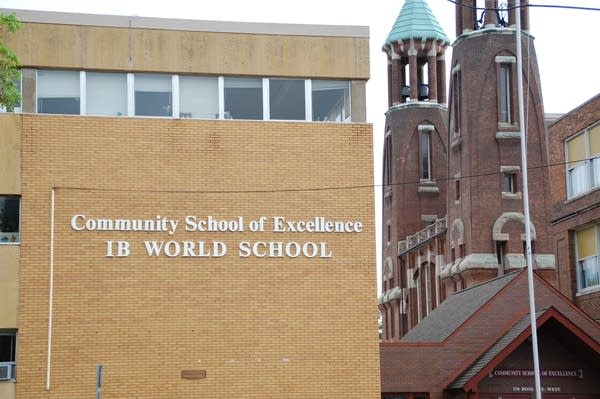Union votes at two charter schools could open door to others

Go Deeper.
Create an account or log in to save stories.
Like this?
Thanks for liking this story! We have added it to a list of your favorite stories.
When teachers at Twin Cities German Immersion School grew frustrated with their school's administration and decided to unionize in January, the vote made news.
It also sparked a flurry of phone calls from teachers at other charter schools to Education Minnesota, the state's teacher's union.
Earlier this month, teachers and staff at the Community School of Excellence in St. Paul also voted to join the teachers union. The votes were unusual moves for charter schools, which in Minnesota traditionally have steered clear of collective bargaining.
Denise Specht, president of Education Minnesota, said the votes at the Twin Cities charter schools present new opportunities for the union to expand its membership to institutions that have typically shunned collective bargaining.
Turn Up Your Support
MPR News helps you turn down the noise and build shared understanding. Turn up your support for this public resource and keep trusted journalism accessible to all.

"When we get inquiries, more often than not it's not about money," Specht said. "It's about respect, it's about having that voice, it's about being able to make decisions about your school without fear or intimidation."
The union's two organizers are now focused on helping teachers at three additional charter schools start the unionization process. They won't say which ones to protect teachers there from retribution.
Typically, charter school teachers have worn their non-unionized status as a badge of honor. They say membership would make it harder to manage their schools the way they want to and to quickly weed out bad teachers.
Nationwide, only 12 percent of charter schools are unionized.
In a state that pioneered the charter school movement, the two Twin Cities unionized charter schools stand out. Of the 150 charter schools in the state, they're the only ones unionized.
Whether those votes mark a new era for the state's teacher's union is up for debate.
Union advocates say charter school teachers are increasingly concerned about testing standards. They worry about pay and view collective bargaining as a way to increase their salaries. In other cases, there is a conflict between the school's administration and the staff.
At the Twin Cities German Immersion School, teachers want job security, said Susan Johnson a Spanish teacher there.
"Due process," Johnson said. "If you are an at-will employee, you can be fired because your boss doesn't like the color your socks."
Recently, unions have made a big push in other states to bring charter school teachers into their ranks. Aaron Sojourner, a labor economist at the University of Minnesota's Carlson School of Management, expects to see more unionization of charter schools.
"Whether it's salary, changes in management, whether it's changes in the economic environment, it's a way for them to try to help guide the policy of the school," Sojourner said of decisions to unionize.
Cindy Murphy, director of the Minnesota Department of Education's charter school program, said collective bargaining is an option for school employees who want more say in how their school is operated.
"I see the provision of collective bargaining in our state law as just that," Murphy said. "It is a provision for charter schools to exercise if it really is best for their local charter school."
The votes reflect unique situations, said Eugene Piccolo, executive director of the Minnesota Association of Charter Schools. He points to a change in state law five years ago that effectively allows charter schools to limit the number of teachers on their boards.
Piccolo said that may be a source of dissatisfaction among charter teachers.
"Leadership and governance I think are key to whether or not people feel they have ownership in the school, whether they feel like they are being listened to," he said.
The union isn't the answer for all charter schools that are having disputes.
Carla Patch, a teacher at Bemidji-based Schoolcraft Learning Community said the more she and her coworkers learned about unionization, the more they worried it would upend their school's mission.
After teachers there resolved their conflicts with the administration, Patch and her colleagues abandoned the idea of joining Education Minnesota.
"I think we felt we would be giving up some of our autonomy," she said. "I think we thought we would be giving up some of our community feel."


